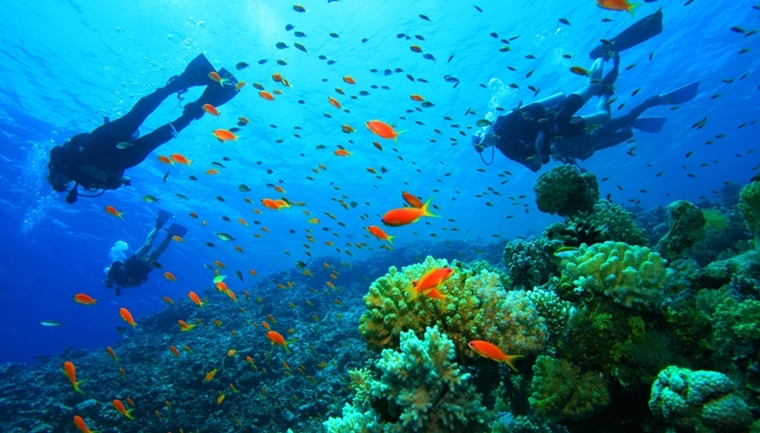Despite covering more than two thirds of Earth’s surface, the ocean remains notoriously unexplored. In fact, the American budget for ocean exploration is 150 times smaller than that for space exploration, which has successfully captured cultural and public imagination for decades. While the moon’s surface has been mapped to a resolution of seven metres and that of Mars to six metres, the best maps of the ocean only have a resolution of slightly over one kilometre.
There are a host of reasons limiting ocean exploration. From the technological challenges of mapping the ocean floor through kilometres of water to a common fear of the dark abyss, the Earth’s waters rarely receive the same level of enthusiasm as deep space exploration. However, the ocean is far more significant to modern human life and its sheer size holds great potential for discovery.
The health of the ocean is essential for human well-being. From an atmospheric standpoint, plankton in the ocean produces between 50 and 80 per cent of the oxygen on Earth. One species known as Prochlorococcus produces 20 per cent of Earth’s oxygen, more than all of the tropical rainforests on land combined. The ocean also absorbs 25 per cent of the carbon dioxide humans emit every year.
Earth’s oceans have a large impact on weather and climate, playing major roles in the distribution of precipitation and moisture around the globe, and storing solar radiation. Additionally, it distributes heat throughout the planet, which is essential for temperature and weather regulation, even on dry land.
The flora and fauna of the ocean are also of great importance. Seafood has been a part of the human diet for millennia, and the increased demand has put a strain on fish populations. The ocean hosts an incredible array of biodiversity: 91 per cent of the 2.2 million marine eukaryotic species have yet to be identified. Marine eukaryotes make up a quarter of all species on the planet, and more than half of them may be on the verge of extinction by 2100.
A better understanding of the effects of climate change on the oceans can allow scientists to mitigate environmental damage. Additionally, gathering data on the oceans is essential for developing sustainable management of marine natural resources, from sustainable shrimp and salmon farming to deepwater drilling.
Scientific progress in a variety of fields benefits directly from ocean exploration. Underwater sediments can reveal the history of tectonic activity, and researchers can predict tsunamis and their impacts by using computer models of the ocean floor.
Natural products found in the ocean also have numerous applications in the medical industry. Substances found in plants and animals have been used for treating illnesses throughout human history and still have their place in modern healthcare. Marine substances also provide essential compounds used in modern medicine, such as chronic pain medication developed from cone snail venom and herpes treatment developed from sea sponges.
It is impossible to predict what strange organisms remain to be discovered in Earth’s oceans, considering the surprises of “immortal” jellyfish, and Jurassic era microbes that would need to be observed for a thousand years to ensure they are alive. Even the giant squid, which had long been mythologized as the beastly Kraken, was only caught on camera in the depths of the ocean in 2004.
The ocean is likely filled to the brim with valuable discoveries. Learning more about the depths of Earth’s waters and the innumerable forms that life can take is a worthy pursuit. Human curiosity has driven the discovery of our planet’s hidden expanses for millennia and the ocean is worthy of our time, effort, and passion.








